When a swarm of bees descended on Charlton Manor primary school in Greenwich the teachers' first reaction was concern. Some were afraid they would have to close the school. But what struck headteacher Tim Baker was how calm the pupils were – and how fascinated.
A bee catcher was called in to collect the uninvited swarm. But Baker was sufficiently intrigued by the children's reaction to arrange for himself and two members of his staff to go on a beekeeping course. A year later, the school got its own hive.
Beekeeping has now been thoroughly integrated into Charlton Manor's curriculum. In PE, the children study the waggle dance that scout bees do to tell the other bees where nectar is to be found. In cooking lessons, they use honey in their recipes, and in geography, they learn how different parts of the world make use of bees.
Business advisors have helped the children open a shop selling honey in the school playground. The pupils weigh the honey and work out pricing, write ads for the shop and design branding for the jars.
An unexpected benefit has been the effect the bees have had on behaviour. Baker says they have had a "massive impact" on challenging pupils:
"One of the big things for me is getting children to think of others, and to be aware of their responsibility to others. With some children, you can't get them to understand that in relation to other children, but you can show them using bees, chickens or plants."
One pupil was a regular visitor to the school's behavioural support house because of his violent outbursts of kicking, punching and throwing furniture around. While he struggled with academic work, he discovered that he excelled at the the practical side of beekeeping: making the wooden frames that go into the hive, and dismantling the hive to access the honey.
When the Guardian's bees expert, Alison Benjamin, visited the school, the pupil told her: "The bees made me peaceful and calm."
Jo Sparkes, the school gardener, told Benjamin: "We think it is the scale of the responsibility he has been given that he is responding positively to. He can't kick off around the hive because we, and the bees, need to trust him.
"It's not just him, other unruly children have also risen to the challenge. They have finally found something they like to do at school and they are good at."
Chris Deaves, from the British Beekeepers Association, has helped write a guide for teachers thinking about introducing bees to their schools.
He says: "The first thing teachers always ask is, can we keep bees?. And the answer is, yes. Unless there is a restriction in your tenancy agreement, there is no law against keeping bees."
The second question tends to be about safety: "Parents and governors worry about the effects of stings. People get over-excited about bee stings: although there are occasional tragedies, these are extremely rare."
A properly thought-out procedure should take care of such anxieties, he advises. Benjamin's book on urban beekeeping contains a section on how schools can assess risk.
Deaves stresses the importance of consulting an expert about where to put the hive. Bees follow flight paths, and you want to avoid establishing one across the school playground.
Surprisingly, having a hive on site doesn't mean that there will be more bees around. Bees forage 2-3 km from their hive – and not within 100m of it.
Baker wholeheartedly recommends beekeeping: "When I first looked into it, I was thinking of the curriculum. But it has had unexpected spin-offs – it has given parents and children a common interest, improved the behaviour of disaffected pupils, and worked on the two extra 'r's' in the curriculum: respect and responsibility."
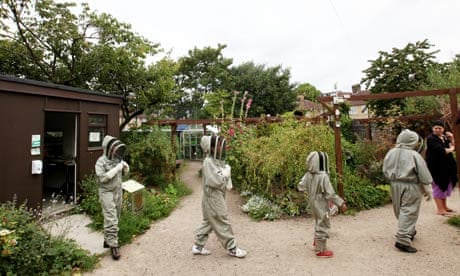

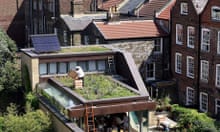
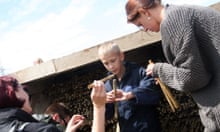
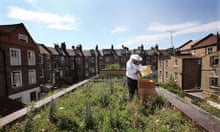
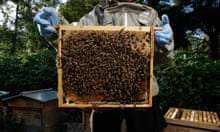
Comments (…)
Sign in or create your Guardian account to join the discussion